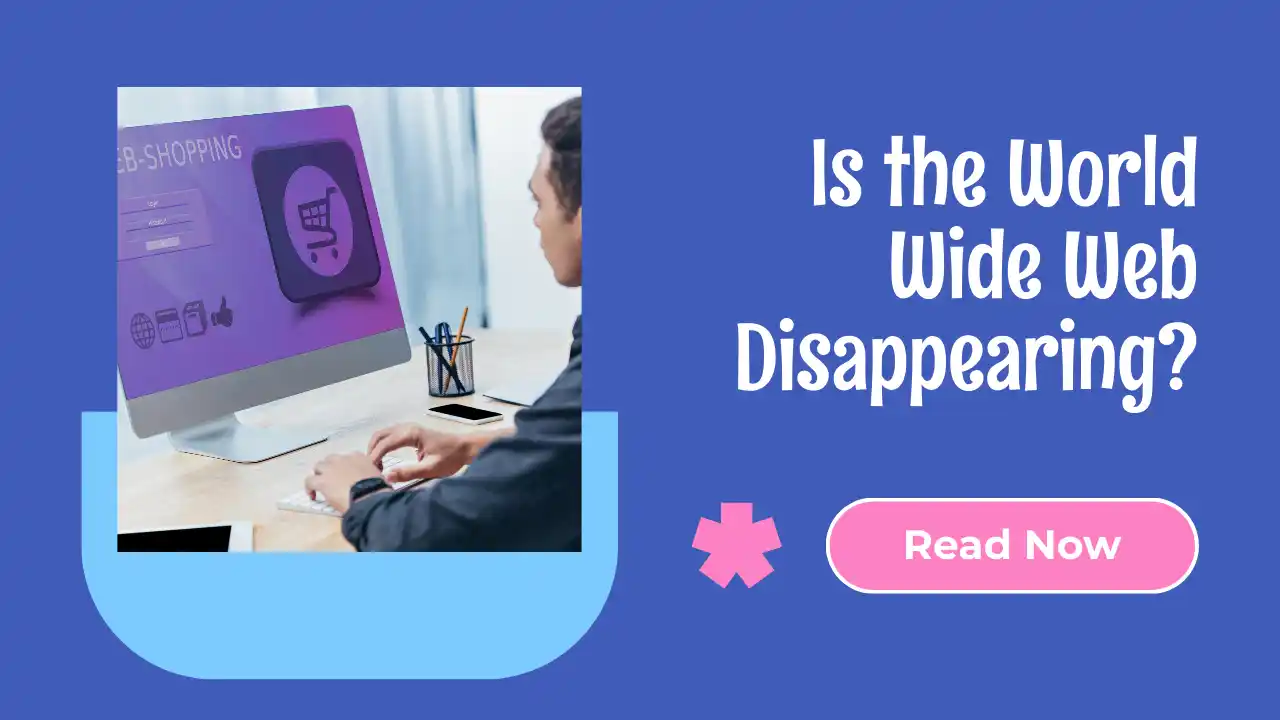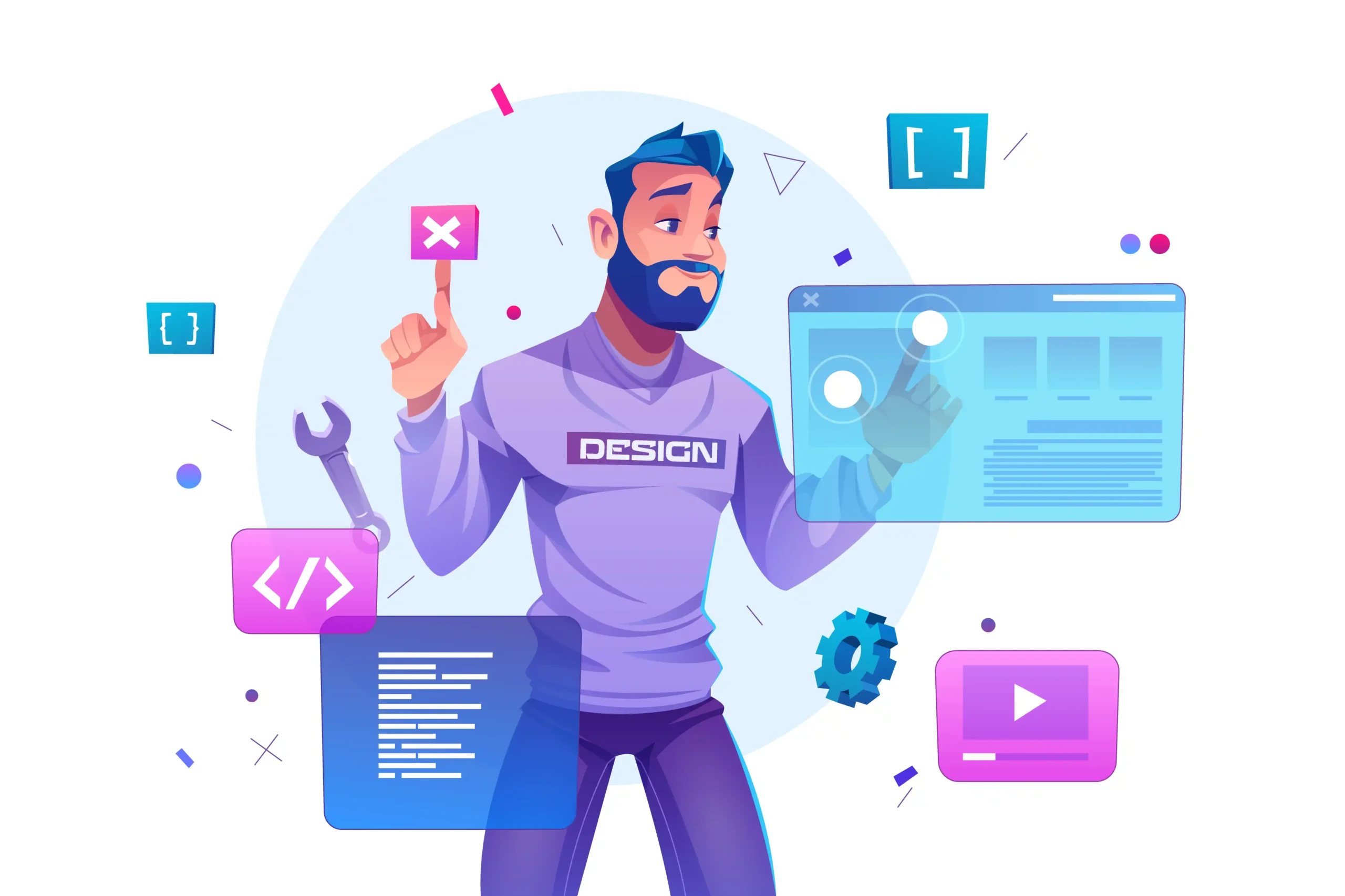Introduction
Have you noticed how differently people use the internet nowadays? Instead of typing a website domain and browsing pages, many are asking a voice assistant, checking apps, or interacting via AI‑driven tools. This shift raises a provocative question: Is the classic web — as in websites + search + browser model — disappearing?
For small businesses and creators, understanding this trend isn’t just academic. Your website and online presence are assets. If the web’s structure changes, your strategy must adapt. Let’s unpack what’s happening, what to watch, and how to make sure you stay relevant.
Why This Question Matters Now
The digital landscape is moving at lightning speed. We’re seeing big changes in how people access content, how traffic flows, and how digital assets are built and maintained.
- AI and voice assistants are increasingly replacing traditional search.
- Apps and closed ecosystems are capturing attention, pulling users away from browser‑based websites.
- Emerging technologies such as Web 3.0 and decentralised systems promise to reshape how the web is built and governed. TechTarget+1
For small business owners and creators, the core question is: Do you still build your online presence around a website, or do you rethink for a new web model?
What We Mean by “The Web”
When we talk about the “Web”, it helps to define exactly what that means:
- The classic web model: you type a domain or click a search result → you land on a website → you browse pages.
- A owned platform model: businesses and creators own domains, host content, control branding and user experience.
- The current dominant traffic model: search engines, referral links, social shares.
This is the model most small businesses and creators are still using and relying on. But it’s the model under pressure.
Signs the Traditional Web Is Under Pressure
Content Is Disappearing Faster Than Ever
Web pages don’t last forever. Domains expire, links rot, content disappears. Studies show vast portions of the web vanish over time. The implication? If your website isn’t maintained or your domain isn’t permanently yours, you may lose your digital asset entirely.
AI and Apps Replacing Classic Browsing
Rather than clicking through ten blue links, users increasingly ask an AI assistant and receive a single answer. Examples: tools like ChatGPT and other AI retrieval tools that summarise content instead of directing you to multiple pages. The Washington Post+1
For websites built on driving search traffic, this model change is significant.
The Rise of Closed Ecosystems
Much of the digital time now happens inside apps and platforms (social media, marketplaces, mobile apps) rather than websites. These closed ecosystems mean creators and small businesses may lose control of traffic, user data and brand experience.
The Web Isn’t Disappearing — It’s Evolving
Important: This isn’t a “the end of the web” scenario. Rather, it’s a shift in how the web operates.
- Web 3.0: The next phase emphasises decentralisation, user‑ownership, smarter interfaces. GeeksforGeeks+1
- AI + agents: Interfaces where AI acts as intermediary between user and content, reducing clicks.
- Multi‑channel “web” experiences: websites remain important, but traffic, discovery and engagement models diversify.
Why This Matters for Small Businesses & Creators
- Your website still matters: It’s your digital home, your brand HQ, your asset. But if you rely only on search traffic or browser visits, you may be vulnerable.
- If the web model changes, websites that aren’t optimised for speed, mobile, voice, and multi‑channel may lose relevance.
- Creators: you’re participating in the web and in app ecosystems. You need to consider how you distribute content, how you are discovered, and who owns your audience.
- Small businesses: Local search, reviews, websites still matter. But diversification (via social, app presence, direct channels) becomes more vital.
How to Prepare for a Post‑Traditional‑Web Future
Own Your Platform (Your Website Still Matters!)
- Secure your domain and hosting.
- Ensure your website is mobile‑first, fast, clean, uses structured data and is voice search friendly.
- Use it as your anchor, even as traffic channels shift.
Embrace Multi‑Channel Presence
- Don’t just rely on search → website. Be present in social, apps, marketplaces, voice assistants.
- Repurpose website content across other platforms to ensure broader reach.
Diversify Traffic Sources
- Paid ads, email lists, partnerships, influencers — add channels beyond organic search.
- Build direct relationships with your audience (e.g., email, communities) so you’re less dependent on platform algorithms.
Leverage AI & Automation Tools
- Use AI to optimise your content, accelerate creation, adapt for voice and new formats.
- Prepare for interfaces where users ask an assistant rather than browse — think about structured data, FAQ schema, voice‑friendly answers.
Final Thoughts: The Web Isn’t Dying — It’s Decentralising
We’re not witnessing the extinction of the web; we’re witnessing its transformation. The next version of the web will be more fragmented, faster, more AI‑driven, and less reliant on “visit my site via search”.
For creators and small businesses, the opportunity lies in being proactive: owning your digital asset, diversifying presence, adapting your strategy for new discovery models. Visibility = opportunity — and in this evolving internet, being ready means you still get that opportunity.
FAQ
Q1: Is the World Wide Web going away?
No — the web isn’t vanishing, but how it works is changing. Websites will still matter, but discovery, traffic models and user behaviour are evolving.
Q2: How is AI changing how people use the Internet?
AI tools are shifting users away from clicking through many pages toward receiving direct answers and interacting with agents, reducing the need for traditional browsing. The Washington Post+1
Q3: Should I still build a website in 2025?
Absolutely. A website remains your digital foundation. Just build it with future‑proofing in mind: mobile, speed, structured data, multi‑channel readiness.
Q4: What is Web 3.0 and does it affect small businesses?
Web 3.0 refers to a more decentralised, intelligent version of the internet that emphasises user‑ownership, data privacy and agentic interfaces. It affects small businesses by shifting how content is distributed, how users are found, and how digital assets are built. TechTarget+1


